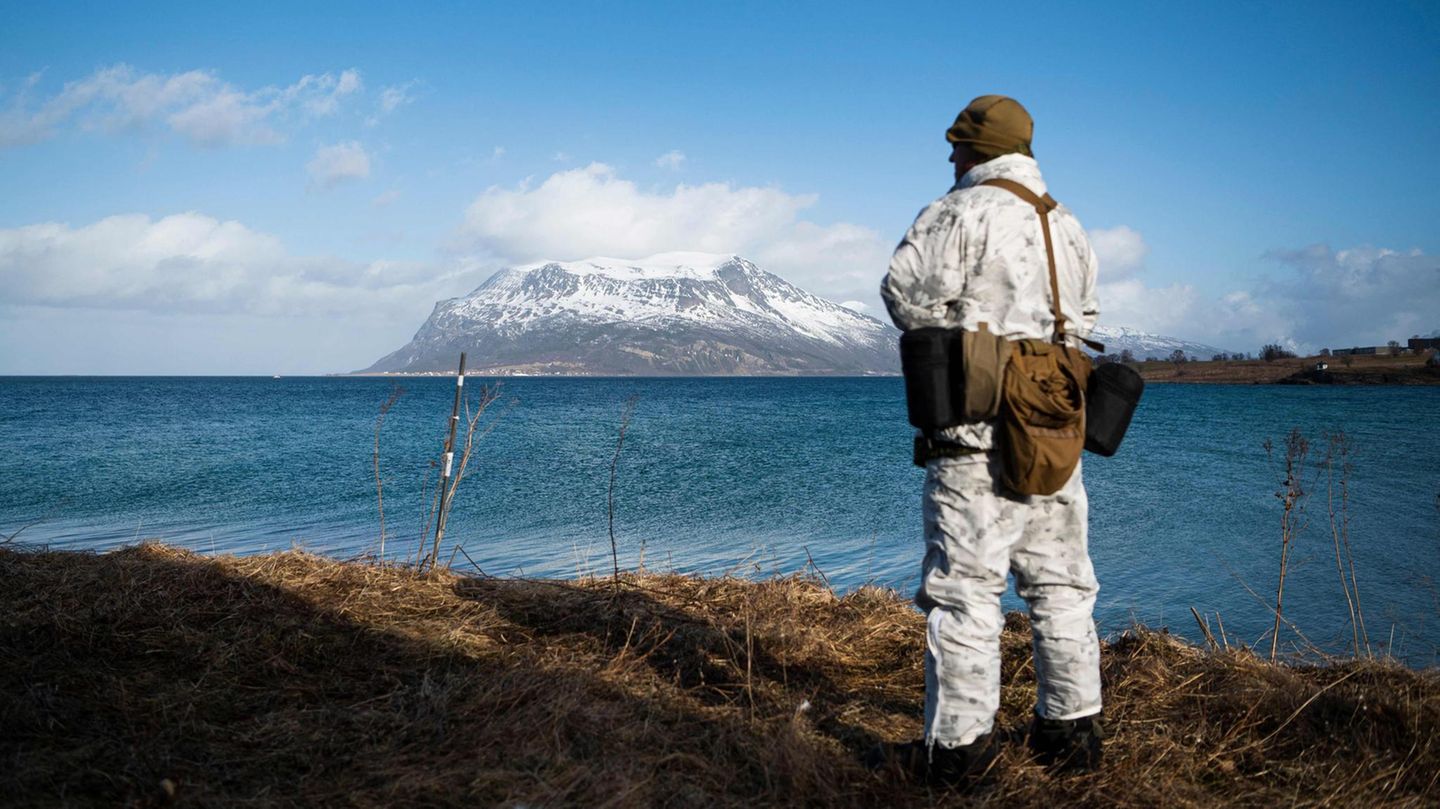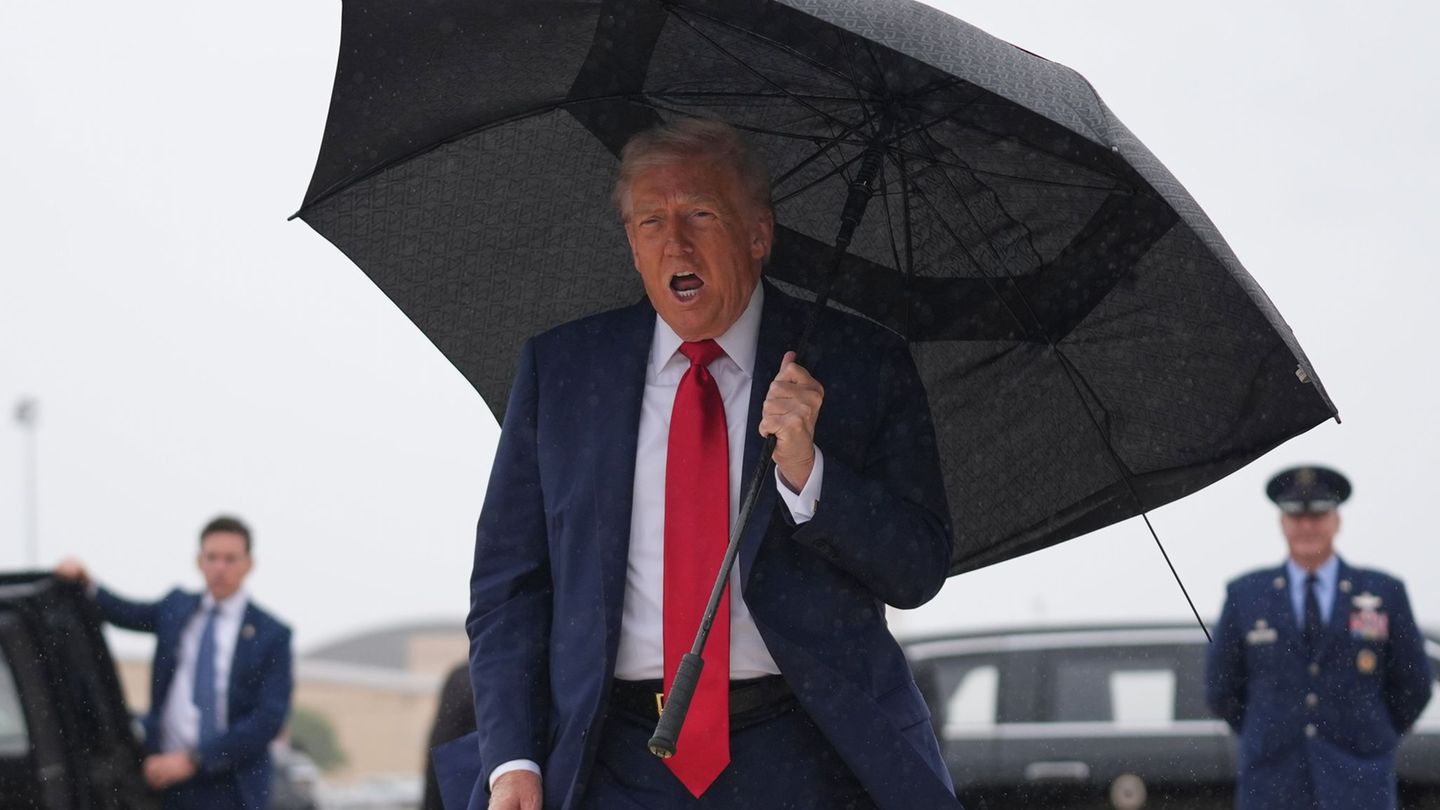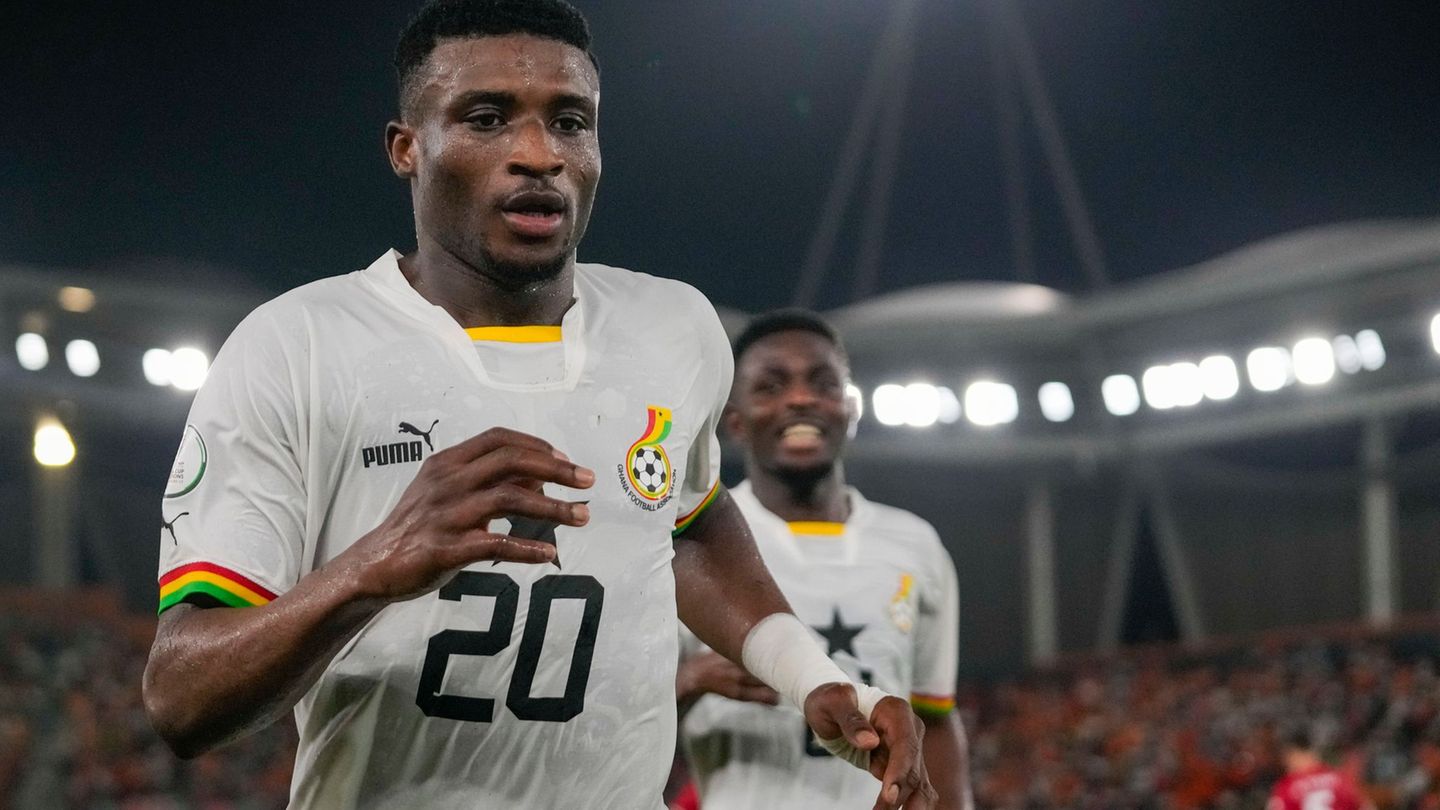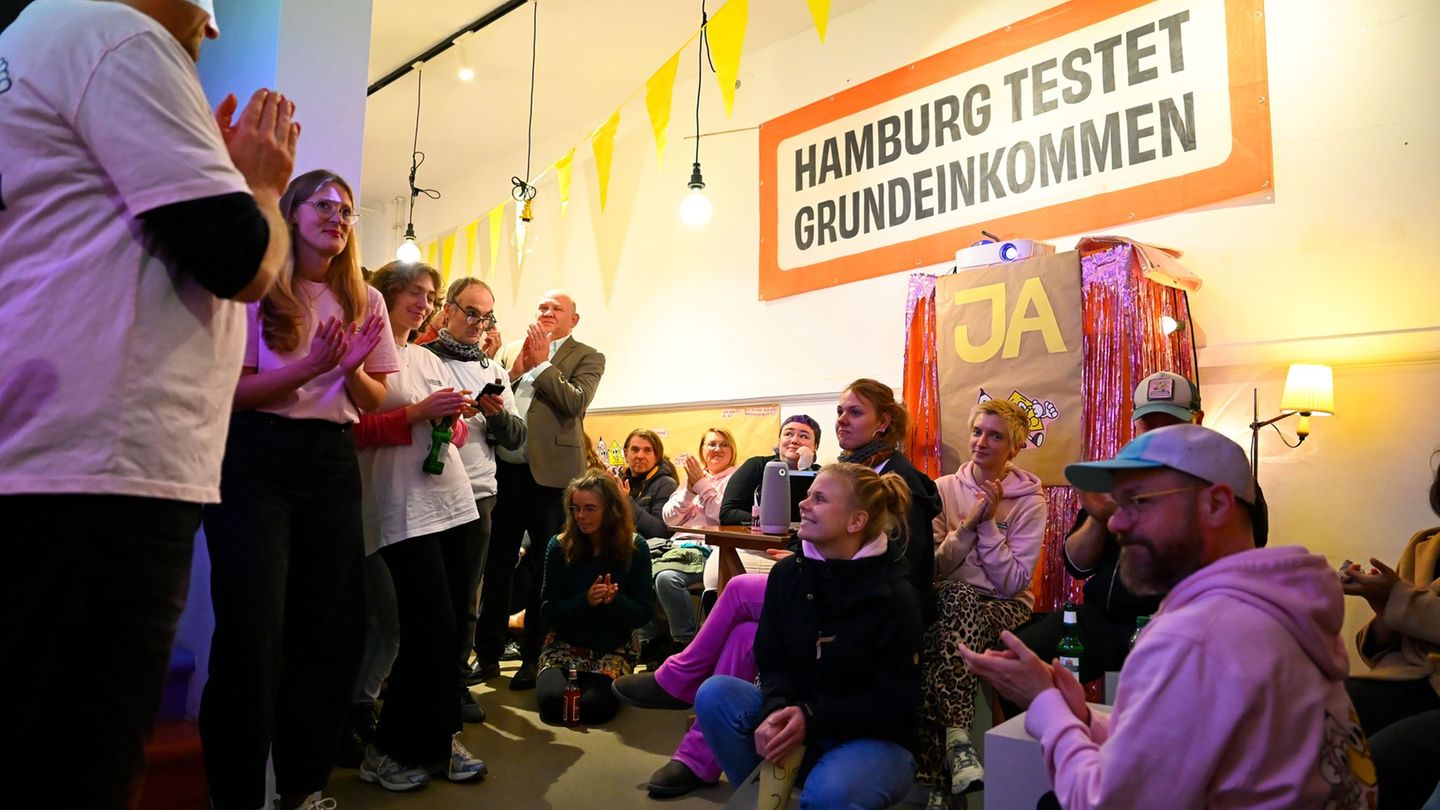At the moment, the fronts between Russia and NATO are harder than they have been for a long time because of the Ukraine war, especially in Eastern Europe. Another conflict between Russia and the West is smoldering in the icy north – with implications for climate research.
“Russia’s war against Ukraine is a turning point. It’s a new normal for European security. And Arctic security, too.” That’s what NATO Secretary General Jens Stoltenberg said on March 25 during a . The Ukraine war had already shaken security in Europe at this point.
In the freezing Arctic, far from the horrors and horrors of Ukraine, the conflict between Russia and NATO could find a new arena.
NATO is also an Arctic alliance, according to Stoltenberg, four out of five countries bordering the Arctic are NATO states: the USA, Canada, Greenland (administered by Denmark) and Norway. “It is a region of strategic importance for the security of the entire Euro-Atlantic area,” said the NATO Secretary General. “And crucial for communications links between North America and Europe. It’s also a region of increasing strategic competition. In recent years we’ve seen a significant increase in Russian military activity here.”
Russia is expanding its military in the Arctic
Russia has rebuilt Soviet-era Arctic bases, says Stoltenberg. The region is a testing ground for many of the country’s new weapon systems. And it is home to Russia’s strategic submarine fleet.
“Russia’s military build-up is the most serious challenge to the stability and security of the Allies in the far north,” Stoltenberg is certain.
The Ukrainian President Zelenskyj also issued a warning to the country during a speech in the Norwegian parliament. “I think you feel new risks on your borders with Russia in the Arctic,” stressing that Russia has made a significant upgrade of its Arctic forces in recent years. “She [Russland] have up there [in der Arktis] built such a large army that no common sense can explain it,” Zelenskyy said. “Who is it against? And why are you doing this?”
In fact, the geopolitical role of the Arctic is coming back onto the agenda with the war in Ukraine. Because the “widespread military build-up since 2007 increases the potential for a conflict between Russia and NATO-allied states to spill over into the region,” analyzes the specialist magazine .
The Arctic harbors many resources
The Arctic is of great interest to many of the riparian states for a number of reasons. On the one hand there are the natural resources such as gas and oil, which are mainly found in the Russian part of the Arctic. Even if Europe wants to detach itself from fossil fuels from Russia, the continent is still dependent on it.
But it’s not just about gas and oil. Minerals, fish stocks, shorter shipping routes between Asia and Europe – all this makes the Arctic interesting for many countries. Climate change and melting ice have uncovered the resources – or will do so in the coming years. Russian President Vladimir Putin could also use Russian resources to further expand his ties with China, which is also eyeing the Arctic region. China, although closer to the equator than the Arctic Circle, has defined itself as a “Near Arctic State” and wants to establish a presence there, Stoltenberg said.
The military build-up at the North Pole poses a danger, writes : “The increasing military activity in the region continues to increase the risk of a misunderstanding or a conflict spreading to the Arctic from outside, especially in the absence of an official security authority for national actors, by the regional Defense issues could be addressed.”
The USA and Canada are arming the “Northern Flank”.
Militarily, Russia’s extensive defense build-up and alternating military exercises by both Russia and NATO actors have created a potentially unstable region. Against the background of growing tensions between the USA and Russia and the increasing decoupling of the US and Chinese economies, the Arctic is developing into “an arena of great power competition”.
The US is already responding. The military and Homeland Security have published reports with titles such as , or . Also should set a sign. A sign that is also addressed to Russia. The NATO exercise was held in Norway in March, in which 27 member states and partners took part.
Neighboring Canada also wants to strengthen the “North Flank of NATO”. Canada’s defense chief, Gen. Wayne Eyre, warns that “much more effort” is needed to strengthen internal security with a strong “northern focus,” the broadcaster reports. The Arctic is a region with a particular security policy focus.
Like NATO Secretary General Stoltenberg, Eyre also notes that Russia has reoccupied former Cold War bases over the past decade. “It is not inconceivable that our sovereignty could be called into question.” But experts like Michael Byers of the University of British Columbia consider a Russian invasion of Canada to be “completely irrational for Russia.” NATO should be more concerned about the military presence in Russia’s north-west, such as the nuclear-powered ballistic-missile submarines stationed in Murmansk. However, Russia also has missiles that could reach Canada and the US.
The Arctic Council boycotts Russia
One problem in the Arctic is that there is no proper management system. Nothing resembling the European Union or the UN. There is an Arctic Council that was founded in 1996. The aim of the council is cooperation and coordination between the eight riparian states and indigenous peoples in the region. National, regional and international agreements are implemented. But the work of the Arctic Council is currently on hold.
Seven of the eight members of the Arctic Council condemn Russia’s war of aggression. The eighth member is Russia itself. No other member (that is Canada, Denmark, Finland, Iceland, Norway, Sweden and the USA) wants to travel to Russia for meetings of the Council, which currently holds the presidency, as it does in any of the seven states called.
But that shot could backfire. Limited dialogue and transparency on military issues, limited ability to implement governance agreements, and tensions among Arctic states could present an opportunity or motivation for states to resolve conflicts in ways other than through regional cooperation, including military ones, states in a report by the think tank in 2021. One solution would be to resume dialogue, improve transparency on military issues and “more inclusivity in Arctic-related decisions [zu] possible without calling into question the sovereignty of the Arctic states.”
Arctic climate research on hiatus
The tensions in the Arctic also raise concerns about research, especially climate research, but also about the climate itself. Russia occupies around 53 percent of the Arctic coastline. A boycott by the Arctic partner therefore has a significant impact on research in the region. This is suspending the council’s efforts from climate change to oil drilling, the magazine said. This is an important problem because temperatures in the Arctic are rising three times faster than the global average. The issue of forest fires in the Arctic has also been addressed by the Council in the past; the problem of thawing permafrost is just as important.
A prolonged hiatus in the Arctic Council’s activities could significantly hamper those efforts, Michael Sfraga, chair of the Polar Institute at the Woodrow Wilson International Center for Scholars and chair of the US Arctic Research Commission, told Scientific American. It could also delay the release of reports summarizing scientific evidence and making recommendations for future action.
And how will NATO react? With an increase in the military presence in the Arctic, as Stoltenberg explained on March 25. More will be needed in the future. “We cannot afford a security vacuum in the far north. It could fuel Russian ambitions that expose NATO and risk misjudgments and misunderstandings.” The presence of NATO is not a provocation. Rather, it should avoid conflict and keep the peace. Nevertheless, the tensions in the region are more likely to increase than decrease.
Other sources: , ,
Source: Stern
David William is a talented author who has made a name for himself in the world of writing. He is a professional author who writes on a wide range of topics, from general interest to opinion news. David is currently working as a writer at 24 hours worlds where he brings his unique perspective and in-depth research to his articles, making them both informative and engaging.




